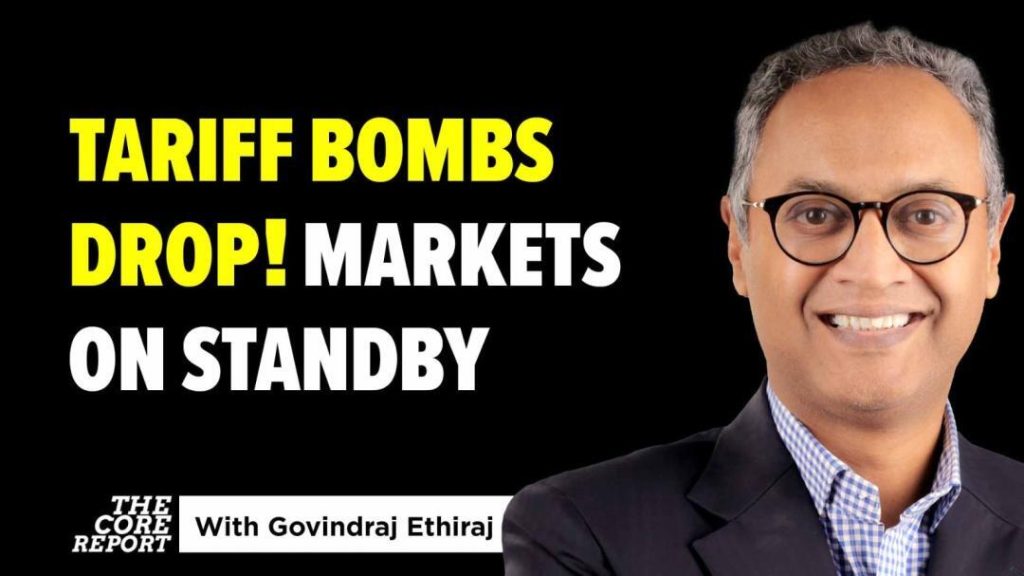
Global Markets Waver as Tariff Uncertainty Deepens
The global financial landscape is looking increasingly uncertain, as market players struggle to make sense of the ever-changing tariff landscape. The Trump administration’s trade policies have been a source of volatility in recent months, leaving investors on edge and searching for a stabilizing force. Unfortunately, that force seems to be nowhere in sight, as the administration’s inconsistencies continue to rattle the markets.
The latest casualty of this uncertainty is the Indian stock market, which is facing its longest losing streak in 30 years. The Nifty 50, India’s benchmark index, has fallen for six consecutive days, with IT and auto stocks leading the decline. While financial stocks have managed to eke out some gains, they have not been enough to offset the losses elsewhere.
This downturn is a stark contrast to the optimism that had been building in the Indian market just a few months ago. The country’s economy had been showing signs of recovery, and the stock market had been reflecting that optimism. However, the latest tariff developments have put a damper on those hopes, leaving investors worried about the potential impact on the economy.
The uncertainty surrounding tariffs is not limited to India, of course. The global market is feeling the strain, as investors struggle to make sense of the Trump administration’s policies. The president’s decision to impose tariffs on imported goods has been met with resistance from other countries, which has led to a cycle of retaliation and counter-retaliation.
This trade war has had far-reaching consequences, including a decline in global trade volumes and a rise in inflation. For investors, it has created a sense of unease, as they try to navigate the ever-changing landscape. The lack of clarity on tariffs has made it difficult for them to make informed investment decisions, leaving them to speculate on the potential impact of future policy moves.
The impact of the tariff uncertainty is not limited to the stock market, of course. The global economy is also feeling the strain, as trade tensions continue to rise. The World Trade Organization has warned that the ongoing trade war could lead to a global recession, if not addressed.
The uncertainty surrounding tariffs is also having an impact on the U.S. economy, which is heavily dependent on international trade. The country’s manufacturing sector has been particularly hard hit, as tariffs have led to a decline in exports and an increase in costs. This has had a ripple effect throughout the economy, leading to job losses and a decline in consumer confidence.
In the face of this uncertainty, investors are looking for a stabilizing force. Unfortunately, the Trump administration’s policies have not been providing that stability. The administration’s inconsistencies have been a source of volatility, leaving investors to wonder what will happen next.
The lack of clarity on tariffs has also led to a decline in investor confidence. The market is no longer seeing the Trump administration as a stabilizing force, and investors are looking elsewhere for guidance. This decline in confidence has led to a decline in stock prices, as investors become increasingly risk-averse.
In the face of this uncertainty, it is more important than ever for investors to stay informed. The global market is a complex and ever-changing landscape, and investors need to be able to navigate that landscape with ease. This means staying up-to-date on the latest news and developments, and being prepared to adapt to changing circumstances.
In conclusion, the global market is feeling the strain as uncertainty over tariffs deepens. The lack of clarity on tariffs has led to a decline in investor confidence, and the global economy is feeling the impact. Investors need to be aware of these developments and be prepared to adapt to changing circumstances. The global market is a complex and ever-changing landscape, and investors need to be able to navigate that landscape with ease.
Source: https://youtu.be/idaYqjxqNFY






